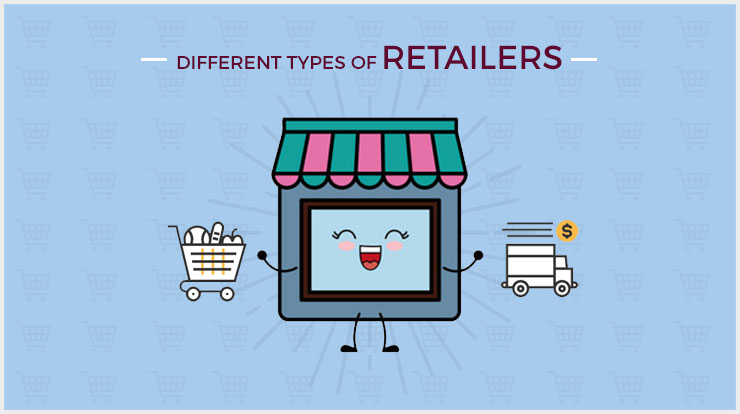Understanding the Different Types of Retailers: A Complete Guide
 Understanding the Different Types of Retailers: A Complete Guide
Understanding the Different Types of Retailers: A Complete Guide
Retailers play a vital role in the distribution chain by connecting manufacturers with consumers. They help make products accessible to the general public, contributing to the economy and consumer satisfaction. Whether you are shopping for groceries, clothing, electronics, or specialty items, knowing the different types of retailers can enhance your shopping experience.
Check out this detailed guide to understand the various types of retailers and how they cater to diverse consumer needs.
1. Department Stores
Department stores are large retail establishments offering a wide variety of goods in different categories, all under one roof. They are organized into separate sections, such as clothing, home goods, electronics, and beauty products. These stores aim to provide a convenient shopping experience by offering a broad range of products and services in one location. They usually have different price ranges, catering to various consumer groups. Department stores are known for their quality products, extensive customer service, and multiple brand options. They are often located in shopping malls or as standalone outlets in city centers.
2. Supermarkets
Supermarkets are large retail stores that primarily sell food and household items. They are designed to meet the everyday needs of consumers by offering a variety of products, including fresh produce, dairy, meat, bakery items, and cleaning supplies. Supermarkets are usually organized into aisles, making it easy for customers to find specific products. They also offer non-food items like toiletries, paper products, and kitchen essentials. Most supermarkets have additional sections like delis, bakeries, and in some cases, pharmacies. The convenience and variety of products make supermarkets a preferred choice for weekly shopping.
3. Specialty Stores
Specialty stores focus on a specific product category, offering a narrower range of products compared to department stores but with more depth and expertise in their niche. These retailers provide a tailored shopping experience, catering to consumers looking for specialized products or brands. Customers often visit specialty stores for their unique product offerings and knowledgeable staff. These stores are ideal for those seeking expertise and quality in a specific category, such as electronics, sporting goods, or fashion.
4. Convenience Stores
Convenience stores are small retail outlets that offer a limited selection of everyday items. These stores are characterized by their small size, long operating hours, and accessibility, often being located near residential areas or along busy roads. Convenience stores cater to customers who need to make quick purchases without spending much time shopping. They typically stock snacks, beverages, basic groceries, and other small items like toiletries and over-the-counter medicines.
5. Discount Stores
Discount stores offer a wide range of products at lower prices than traditional retail stores. They achieve this by reducing operational costs, offering no-frills services, and buying products in bulk to pass on savings to customers. These stores appeal to budget-conscious shoppers who are looking for deals and discounts on everyday items. Discount stores can carry a variety of products, including groceries, clothing, and household goods.
6. Online Retailers
Online retailers operate entirely on the Internet, providing a virtual shopping experience that allows consumers to purchase products from the comfort of their homes. They offer an extensive range of products, often with competitive pricing and convenient delivery options. Online retailers like Amazon and eBay have revolutionized the shopping experience by providing easy access to a wide array of products. Customers can browse, compare prices, read reviews, and make purchases without leaving their homes.
7. Warehouse Clubs
Warehouse clubs are membership-based retailers that offer products in bulk at discounted prices. These stores cater primarily to businesses and consumers who prefer to buy in larger quantities to save money. Warehouse clubs operate on a low-margin, high-volume business model. They require customers to purchase an annual membership to access their deals. These stores typically sell groceries, electronics, clothing, and household goods in bulk.
8. Direct Selling
Direct selling involves selling products directly to consumers without a fixed retail location. This model often relies on personal relationships and networks to reach customers. Companies like Avon and Amway have popularised direct selling by using independent sales representatives who personally recommend and sell products. This method allows for personalized customer interactions and the opportunity for consumers to learn about products directly from sellers. Direct selling can be particularly effective for niche markets and products that benefit from demonstrations or personal testimonials.
Conclusion
Choosing the right type of retailer depends on what you’re looking to buy, your budget, and your shopping preferences. Whether you prefer the convenience of a supermarket, the expertise of a specialty store, or the ease of shopping online, understanding the different types of retailers can help you make better shopping decisions. Each retailer type has its unique features, catering to different consumer needs. By recognizing these distinctions, you can enjoy a more fulfilling shopping experience. So, next time you plan to shop, consider which type of retailer suits your needs best and make your choice accordingly.







